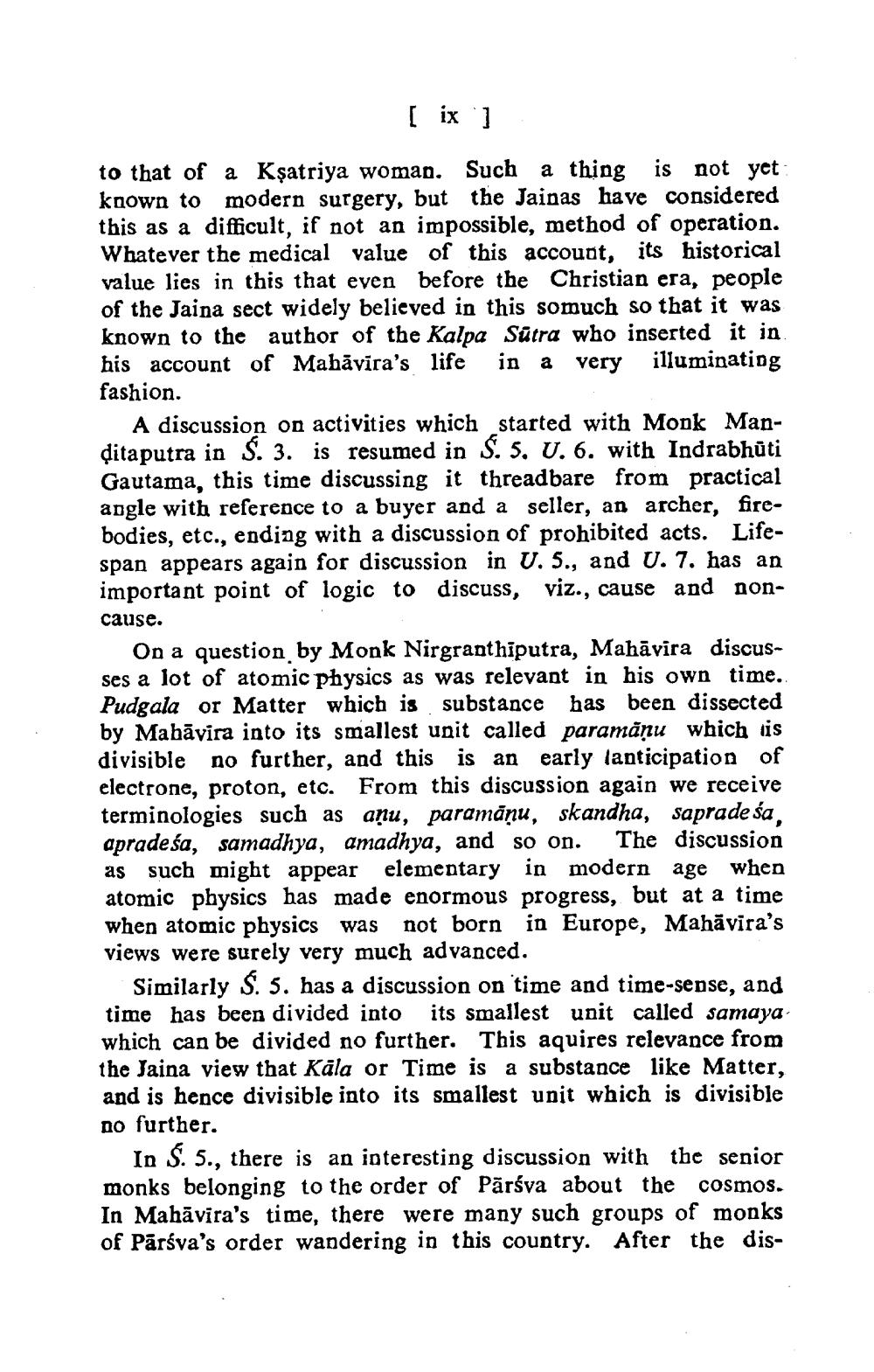________________
[ ix ]
to that of a Ksatriya woman. Such a thing is not yet known to modern surgery, but the Jainas have considered this as a difficult, if not an impossible, method of operation. Whatever the medical value of this account, its historical value lies in this that even before the Christian era, people of the Jaina sect widely believed in this somuch so that it was known to the author of the Kalpa Sutra who inserted it in. his account of Mahāvīra's life in a very illuminating fashion.
A discussion on activities which started with Monk Manḍitaputra in S. 3. is resumed in §. 5. U. 6. with Indrabhūti Gautama, this time discussing it threadbare from practical angle with reference to a buyer and a seller, an archer, firebodies, etc., ending with a discussion of prohibited acts. Lifespan appears again for discussion in U. 5., and U. 7. has an important point of logic to discuss, viz., cause and non
cause.
On a question by Monk Nirgranthiputra, Mahavira discusses a lot of atomic physics as was relevant in his own time. Pudgala or Matter which is substance has been dissected by Mahavira into its smallest unit called paramāņu which is divisible no further, and this is an early lanticipation of electrone, proton, etc. From this discussion again we receive terminologies such as anu, paramāņu, skandha, saprade sa, apradeśa, samadhya, amadhya, and so on. The discussion as such might appear elementary in modern age when atomic physics has made enormous progress, but at a time when atomic physics was not born in Europe, Mahavira's views were surely very much advanced.
Similarly S. 5. has a discussion on time and time-sense, and time has been divided into its smallest unit called samaya which can be divided no further. This aquires relevance from the Jaina view that Kala or Time is a substance like Matter, and is hence divisible into its smallest unit which is divisible no further.
In S. 5., there is an interesting discussion with the senior monks belonging to the order of Pärśva about the cosmos. In Mahāvira's time, there were many such groups of monks of Pārsva's order wandering in this country. After the dis




